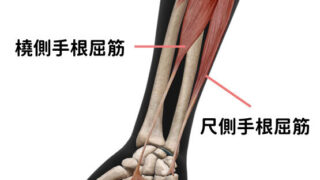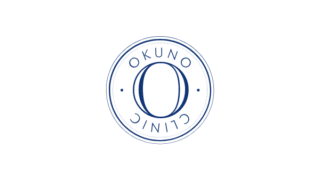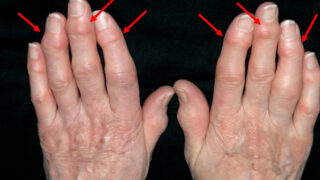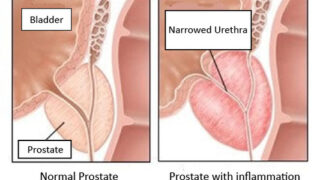สารบัญ
คุณเคยรู้สึกเจ็บแปลบหรือปวดตื้อ ๆ บริเวณหน้าอกที่ดูเหมือนจะแย่ลงเมื่อหายใจเข้าลึก ๆ ไอ หรือขยับหน้าอกหรือไม่? หากใช่ คุณอาจกำลังเผชิญกับภาวะที่เรียกว่า โรคกระดูกอ่อนซี่โครงอักเสบ ซึ่งเป็นภาวะที่พบได้บ่อยเมื่อกระดูกอ่อนที่เชื่อมซี่โครงกับกระดูกหน้าอกเกิดการอักเสบและระคายเคือง ภาวะนี้สามารถทำให้เกิดอาการเจ็บหน้าอกได้ และพบได้บ่อยทีเดียว
Q โรคกระดูกอ่อนซี่โครงอักเสบคืออะไร?
โรคกระดูกอ่อนซี่โครงอักเสบคือการอักเสบของกระดูกอ่อนที่เชื่อมระหว่างซี่โครงกับกระดูกหน้าอก ถึงแม้จะไม่ทราบสาเหตุที่แน่ชัด แต่ก็มักเกี่ยวข้องกับการบาดเจ็บซ้ำ ๆ หรือการใช้งานร่างกายอย่างหนัก นอกจากนี้ยังอาจเกิดจากการติดเชื้อไวรัส เช่น โรคไข้หวัดธรรมดาหรือไข้หวัดใหญ่
อาการทั่วไปของโรคกระดูกอ่อนซี่โครงอักเสบ
ถึงแม้สาเหตุที่แน่ชัดของโรคกระดูกอ่อนซี่โครงอักเสบจะไม่ทราบแน่ชัด แต่เชื่อว่าเกี่ยวข้องกับการบาดเจ็บซ้ำ ๆ หรือการใช้งานร่างกายหนักเกินไป นอกจากนี้ยังอาจเกิดจากการติดเชื้อไวรัส เช่น โรคไข้หวัดธรรมดาหรือไข้หวัดใหญ่
เรามาดูอาการต่าง ๆ เพื่อทำความเข้าใจภาวะนี้ให้มากขึ้นกันเถอะ

- อาการเจ็บหน้าอกแบบแปลบหรือปวดตื้อ : อาการที่พบบ่อยที่สุดของโรคกระดูกอ่อนซี่โครงอักเสบคืออาการเจ็บหน้าอก ซึ่งอาจรู้สึกแปลบหรือปวดตื้อ คุณอาจรู้สึกเจ็บบริเวณด้านซ้าย ด้านขวา หรือกึ่งกลางของหน้าอก
- อาการปวดที่แผ่ไปด้านหลัง : อาการนี้อาจแผ่กระจายไปยังหลังหรือช่องท้องได้ อาการปวดอาจรุนแรงขึ้นเมื่อคุณหายใจลึก ๆ หรือไอ และอาจบรรเทาลงเมื่อคุณพักผ่อนหรือรับประทานยาแก้ปวดที่หาซื้อได้ตามร้านขายยา เช่น ไอบูโพรเฟนหรืออะเซตามิโนเฟน (พาราเซตามอล)
นอกจากนี้ มีโอกาสเล็กน้อยที่ผู้ป่วยบางรายที่เป็นโรคกระดูกอ่อนซี่โครงอักเสบอาจมีภาวะแทรกซ้อนร่วมกับโรคข้ออักเสบบางชนิดอยู่แล้ว (เช่น โรคข้ออักเสบรูมาตอยด์, โรคข้อกระดูกสันหลังอักเสบยึดติด, โรคข้ออักเสบผิวหนังฝ่ามือฝ่าเท้าเป็นตุ่มหนอง)
นอกจากนี้ เชื้อโรคต่าง ๆ เช่น ไวรัสและแบคทีเรีย ก็สามารถติดเชื้อบริเวณซี่โครงและทำให้เกิดโรคนี้ได้เช่นกัน อีกทั้งเนื้องอกยังอาจเป็นสาเหตุของโรคกระดูกอ่อนซี่โครงอักเสบได้ โดยเนื้องอกสามารถแพร่กระจายไปยังข้อต่อจากส่วนอื่นของร่างกาย เช่น เต้านม, ต่อมไทรอยด์ หรือปอด
อย่างไรก็ตาม สิ่งสำคัญคือควรพบแพทย์ผู้เชี่ยวชาญและรับการวินิจฉัยอย่างถูกต้องก่อนที่จะคาดเดาถึงสาเหตุและประเภทของโรคเอง
การรักษาโรคกระดูกอ่อนซี่โครงอักเสบ
ข่าวดีคือโรคกระดูกอ่อนซี่โครงอักเสบมักสามารถจัดการได้ ขั้นตอนแรกคือการควบคุมอาการปวดและการอักเสบ ยาแก้ปวดที่หาซื้อได้ตามร้านขายยาสามารถช่วยได้ดี แต่หากอาการปวดรุนแรง แพทย์อาจสั่งจ่ายยาแก้ปวดที่แรงขึ้นหรือแนะนำให้ฉีดสเตียรอยด์เพื่อลดการอักเสบ
การพักผ่อนและหลีกเลี่ยงกิจกรรมที่ทำให้อาการแย่ลง เช่น การยกของหนักหรือการออกกำลังกายอย่างหักโหม จะช่วยให้อาการดีขึ้น นอกจากนี้ ควรหลีกเลี่ยงกิจกรรมที่ต้องใช้แขนยกขึ้นเหนือศีรษะเป็นเวลานาน
แม้การใช้ยาจะช่วยได้ แต่วิธีที่ดีที่สุดในการฟื้นตัวคือการพักผ่อนอย่างเพียงพอและผ่อนคลาย การพักผ่อนและหลีกเลี่ยงกิจกรรมที่ทำให้อาการกำเริบจะช่วยให้ฟื้นตัวได้เร็วขึ้น หากการประคบร้อนหรือเย็นบริเวณที่ปวดจะช่วยบรรเทาอาการได้ คุณก็สามารถทำได้ตามความเหมาะสม
การรักษาโรคกระดูกอ่อนซี่โครงอักเสบโดยทั่วไปจะเน้นไปที่การจัดการอาการปวดและการอักเสบ ยาแก้ปวด เช่น ไอบูโพรเฟนหรืออะเซตามิโนเฟน (พาราเซตามอล) ช่วยบรรเทาอาการปวดและลดการอักเสบได้ ในบางกรณีอาจจำเป็นต้องใช้ยาแก้ปวดที่แพทย์สั่ง การพักผ่อนและหลีกเลี่ยงกิจกรรมที่ทำให้อาการแย่ลงจะช่วยให้การฟื้นตัวเป็นไปอย่างมีประสิทธิภาพมากยิ่งขึ้น
Q โรคประสาทระหว่างซี่โครงคืออะไร?
โรคประสาทระหว่างซี่โครงคือภาวะที่มีอาการปวดตามแนวเส้นประสาทระหว่างซี่โครง ซึ่งเส้นประสาทเหล่านี้ทำหน้าที่รับความรู้สึกบริเวณผนังหน้าอก เมื่อเส้นประสาทเกิดการระคายเคืองหรือถูกทำลาย อาจทำให้เกิดอาการปวดแปลบ ปวดแสบปวดร้อน หรือปวดแบบแทงลึกบริเวณหน้าอก ซี่โครง หรือช่องท้องส่วนบน อาการปวดอาจรุนแรงขึ้นเมื่อมีการเคลื่อนไหว ไอ หรือหายใจลึก ๆ
Q ความแตกต่างระหว่างโรคกระดูกอ่อนซี่โครงอักเสบและโรคประสาทระหว่างซี่โครงคืออะไร?
โรคประสาทระหว่างซี่โครงเกิดจากความเสียหายของเส้นประสาทระหว่างซี่โครง ซึ่งวิ่งตามแนวซี่โครง ในขณะที่โรคกระดูกอ่อนซี่โครงอักเสบแตกต่างออกไป เนื่องจากอาการปวดจะเกิดขึ้นเฉพาะบริเวณรอยต่อระหว่างกระดูกอ่อนซี่โครงและซี่โครง
โรคประสาทระหว่างซี่โครงมักเกี่ยวข้องกับโรคอื่นร่วมด้วย โดยเฉพาะในผู้สูงอายุ จำเป็นต้องพิจารณาความเป็นไปได้ของโรคมะเร็งและตรวจหาสาเหตุที่แท้จริง โรคประสาทระหว่างซี่โครงเป็นความผิดปกติที่ทำให้เกิดอาการปวดรุนแรง คล้ายถูกแทง หรือปวดแสบร้อน ซึ่งมักจะเป็นไปตามแนวเส้นประสาทระหว่างซี่โครง อาการที่เด่นชัดคืออาการปวดที่แผ่จากด้านหลังมาด้านหน้าและอาการไวต่อความเจ็บปวดของผิวหนังบริเวณที่เกี่ยวข้อง
โรคประสาทระหว่างซี่โครงยังพบได้บ่อยหลังการผ่าตัดเต้านมหรือหน้าอก นอกจากนี้ยังมีรายงานในผู้ป่วยที่มีเส้นประสาทบาดเจ็บจากอุบัติเหตุหรือการผ่าตัด (neuroma) รวมถึงผู้ป่วยที่ติดเชื้อเฮอร์ปีส ซอสเตอร์ (งูสวัด) อีกด้วย
Q โรคกระดูกอ่อนซี่โครงอักเสบใช้เวลานานเท่าไหร่ในการรักษาให้หาย?
โรคกระดูกอ่อนซี่โครงอักเสบมักหายได้เองภายในไม่กี่สัปดาห์ และโดยทั่วไปไม่เกินสองสามเดือน อย่างไรก็ตาม ในบางกรณีอาจยาวนานกว่า 1 ปี นอกจากนี้ แม้อาการจะดีขึ้นแล้ว แต่อาจกลับมาเป็นซ้ำได้อีกหลายครั้ง ในกรณีเช่นนี้ อาจมีหลอดเลือดผิดปกติที่ไม่พบในภาวะปกติหลงเหลืออยู่ ซึ่งอาจทำให้การฟื้นตัวเป็นไปได้ยากขึ้น
การปรึกษา
หากคุณประสบปัญหาอาการปวดเรื้อรังที่ยาวนานเกินไป โปรดติดต่อเรา
หากคุณต้องการทราบข้อมูลเพิ่มเติมเกี่ยวกับโรคกระดูกอ่อนซี่โครงอักเสบ ผลกระทบที่มีต่อร่างกาย และวิธีจัดการกับภาวะนี้ กรุณาติดตามข้อมูลเพิ่มเติมได้จากเว็บไซต์ของเรา!
Author

-
-Dr. Yuji Okuno-
ฉันเริ่มต้นอาชีพในฐานะแพทย์รังสีวิทยาทางการแทรกแซง ซึ่งนำไปสู่การวิจัยเกี่ยวกับการสร้างหลอดเลือดผิดปกติในระหว่างการศึกษาปริญญาโท ในฐานะผู้เขียนหลัก ฉันได้เผยแพร่ผลการศึกษาที่เกี่ยวข้องกับยีนที่เกี่ยวข้องในวารสาร Nature Medicine ในปี 2012 จากงานวิจัยนี้ ฉันได้พัฒนาการรักษาด้วยการอุดหลอดเลือดแบบใหม่สำหรับโรคทางกล้ามเนื้อและกระดูกเรื้อรัง เช่น ข้อเข่าเสื่อมและไหล่แข็ง และเป็นคนแรกที่รายงานถึงความปลอดภัยและประสิทธิภาพของมัน แนวทางนี้กำลังได้รับการศึกษาระดับนานาชาติ
-Career-
2549-2552 นักศึกษาฝึกงาน, ภาควิชารังสีวิทยา, คลินิกา ET, โยโกฮาม่า, ญี่ปุ่น
2552-2555 นักวิจัย, ศูนย์วิจัยการแพทย์แบบบูรณาการ, มหาวิทยาลัยเคโอ, โตเกียว, ญี่ปุ่น
2555-2558 นักวิจัยคลินิก, ภาควิชารังสีวิทยาทางการแทรกแซง, โรงพยาบาลเอดะโงะ, โตเกียว, ญี่ปุ่น
2558-2560 ผู้อำนวยการ, ศูนย์แทรกแซงทางกระดูกและข้อ, โรงพยาบาลเอดะโงะ, โตเกียว, ญี่ปุ่น
2560- ปัจจุบัน ผู้อำนวยการสูงสุด, คลินิกโอกุโนะ, โตเกียว, ญี่ปุ่น
Latest posts
 Jan 21, 2026Golfer’s Elbow
Jan 21, 2026Golfer’s Elbow Sep 12, 2025โรคเกาต์ FAQ
Sep 12, 2025โรคเกาต์ FAQ Sep 12, 2025Heberdens Nodes FAQ
Sep 12, 2025Heberdens Nodes FAQ Feb 7, 2025Chronic prostatitis โรคต่อมลูกหมากอักเสบ
Feb 7, 2025Chronic prostatitis โรคต่อมลูกหมากอักเสบ